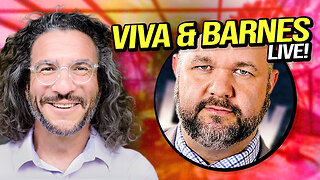Oberto, Conte di San Bonifacio 'Opera in Two Acts' - Giuseppe Verdi 'Bergonzi - Gardelli - 1983'
Composition Year: 1839
First Performance: 1839-11-17 in Milan, Teatro alla Scala
Recorded: 1984
~
Performers:
Cuniza-Ruza Baldani (mezzo-soprano)
Riccardo-Carlo Bergonzi (tenor)
Oberto - Rolando Panerai (bass)
Leonora-Gena Dimitrova (soprano)
Imelda - Alison Browner (mezzo-soprano)
~
Munich Radio Symphony Orchestra
Chorus of the Bavarian Radio
Lamberto Gardelli - Conductor:
~
00:01 1. Sinfonia
Act One, 1st Tableau
06:06 2. Coro d’Introduzione - Cavatina (Riccardo)
15:32 3. Cavatina (Leonora)
23:20 4. Scena e Duetto (Leonora, Oberto)
Act One, 2nd Tableau
37:12 5. Coro
39:45 6. Scena e Duetto (Cuniza, Riccardo)
48:01 7. Recitativo (Imelda, Leonora)
48:36 8. Scena e Terzetto (Leonora, Cuniza, Oberto)
01:00:58 9. Finale I (Cuniza, Riccardo, Leonora, Oberto, Imelda, Coro)
Act Two, 1st Tableau
01:08:36 10. Coro, Scena (Coro di Damigelle, Imelda, Cuniza) Aria (Cuniza)
Act Two, 2nd Tableau
01:18:42 11. Coro di Cavalieri
01:22:17 12. Scena ed Aria (Oberto, Coro)
01:28:25 13. Scena e Quartetto (Oberto, Riccardo, Cuniza, Leonora)
01:40:27 14. Coro di Cavalieri
01:43:14 15. Romanza (Riccardo)
01:47:29 16. Scena ed Adagio (Cuniza, Imelda, Coro)
01:51:35 17. Scena (Cuniza, Leonora, Coro) Rondo finale (Coro, Cuniza, Leonora)
~
Work:
Oberto, Conte di San Bonifacio is an opera in two acts by Giuseppe Verdi to an Italian libretto by Temistocle Solera, based on an existing libretto by Antonio Piazza probably called Rocester.
It was Verdi's first opera, written over a period of four years, and was first performed at the Teatro alla Scala, Milan, on 17 November 1839. The La Scala production enjoyed "a fair success" and the theatre's impresario, Bartolomeo Merelli, commissioned two further operas from the young composer.
~
Composition history
During his student days in Milan, Verdi began the process of making connections to the world of music in that city which were to stand him in good stead. These included an introduction by his teacher Lavigna to an amateur choral group, the Società Filarmonica, where he functioned as rehearsal director and continuo player for Haydn's The Creation in 1834, as well as conducting Rossini's La cenerentola himself the following year. 1836 saw his involvement in an April concert celebrating Emperor Ferdinand's birthday; for this he wrote a cantata in the Emperor's honour, which received some praise.
~
But it was after his return to his hometown of Busseto in 1835 to become director of the music school with a three-year contract that Verdi took advantage of the connection he had made to the Filarmonica's director, Pietro Massini. In a series of letters from 1835 to 1837 he informed him about the progress towards writing his first opera using a libretto supplied by Massini which had been written by Antonio Piazza, a Milanese "journalist and man of letters". By then it had been given the title of Rocester, and the young composer expressed hopes of a production in Parma.
~
However, Parma was not interested in new works and so approaches were made to Milan. Whether Rocester actually became the basis for Oberto when Verdi was able to return to Milan in February 1839 after fulfilling two and a half years of his contract in Busseto is subject to some disagreement amongst scholars. How much of Rocester remained visible in Oberto is discussed by Roger Parker, who does suggest that "in this shape-shifting tendency, the opera was, of course, very much of its time."
In his recollections in 1881 (quoted in Budden) following his return to Milan from Busseto in 1838, Verdi describes how he was invited to meet the La Scala impresario, Bartolomeo Merelli, who had heard a conversation about the music of the opera between soprano Giuseppina Strepponi and Giorgio Ronconi in which she praised it. Merelli then offered to put on Oberto during the 1839 season and, after its premiere, Oberto was given a respectable 13 additional performances.
~
Wikipedia: Extended biography: https://bit.ly/3JPtvPs
~
ATTRIBUTION
Music contained in this video is licensed to: Orfeo 1984, Munchen
-
 58:11
58:11
The Why Files
4 days agoThe Search for Noah's Ark | Giants & Aliens in the Book of Enoch
103K134 -
 2:15:43
2:15:43
vivafrei
14 hours agoFATHER'S DAY SPECIAL! Young Thug! Hunter Biden! 2nd Amendment! SCOTUS & MORE! Viva & Barnes!
113K143 -
 LIVE
LIVE
Vigilant News Network
12 hours agoMedia Blackout: 10 News Stories They Chose Not to Tell You - Episode 27
2,791 watching -
 1:10:08
1:10:08
The Late Kick with Josh Pate
8 hours agoLate Kick Live Ep 522: CFB’s Loudest Stadiums | SEC Sleepers | Preseason Poll Ban | Recruiting Scoop
25.3K1 -
 1:17:59
1:17:59
Game On!
11 hours agoSpecial Father's Day NFL Stream! Happy Father's Day Dads
55.1K6 -
 43:20
43:20
Standpoint with Gabe Groisman
16 hours agoEp. 31. US Military Assessment of Gaza-Israel Conflict. Lt. Col. Geoffrey Corn
65.8K38 -
 1:29:53
1:29:53
TheAlecLaceShow
1 day agoGuests: Vivek, MTG, Roger Stone, Mike Lindell & More | Live From Detroit | The Alec Lace Show
72.3K85 -
 7:39
7:39
Sideserf Cake Studio
1 day ago $11.22 earnedA Hyperrealistic Cake on the Ceiling?! Celebrating 6 Million Subscribers!
111K23 -
 1:04:23
1:04:23
Squaring The Circle w/ Randall Carlson
1 day ago#008 Are Sea Levels REALLY Rising? Pt 1 - Squaring the Circle: A Randall Carlson Podcast
107K75 -
 8:31
8:31
Film Threat
1 day agoHOUSE OF THE DRAGON SEASON 2 EPISODES 1 & 2 | Film Threat Reviews
114K13